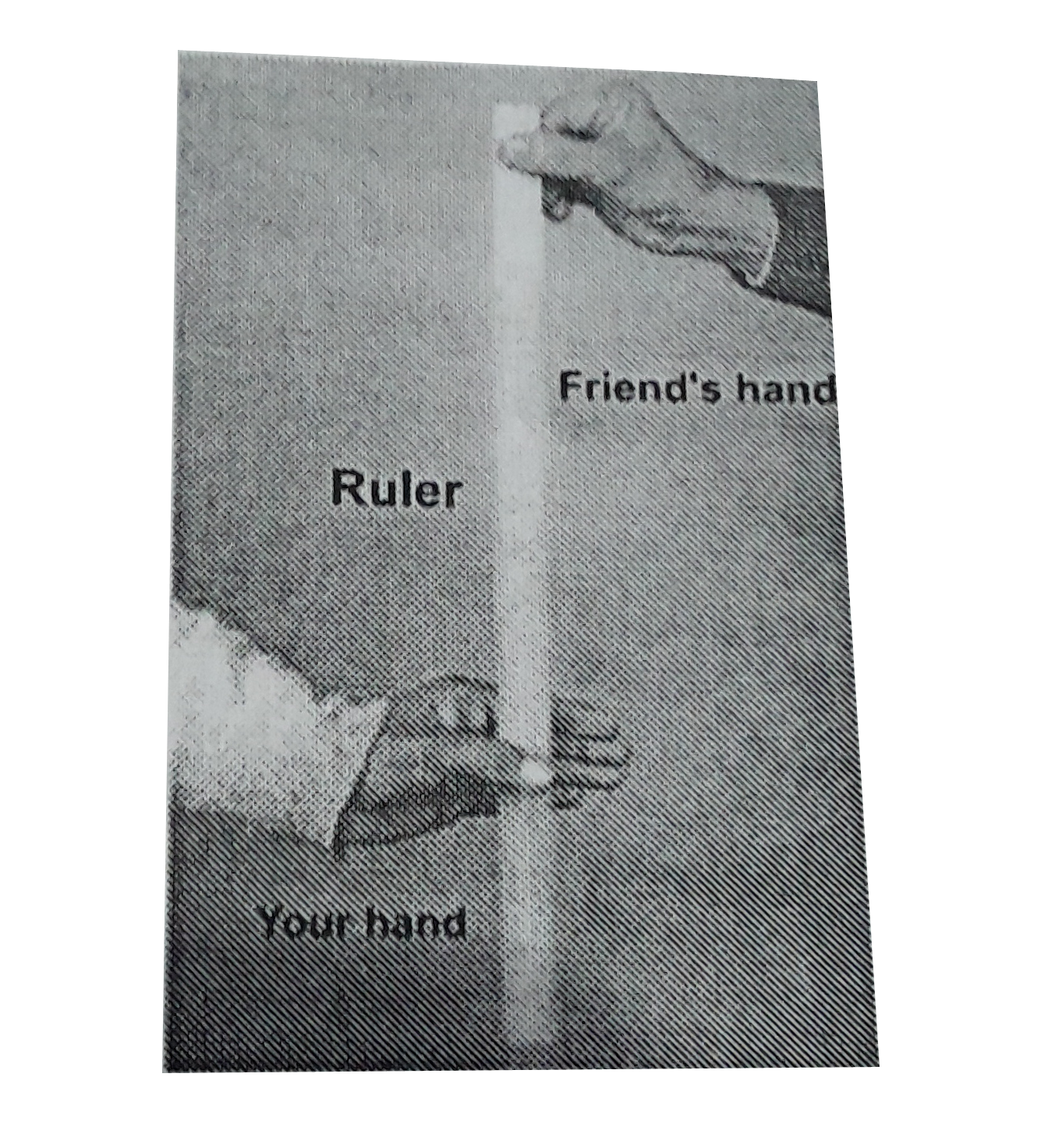When a situation demands our immediate action. It takes some time before we really respond. Reaction time is the time a person takes to observe. Think and act. For example. If a person is driving and suddenly a boy appears on the road, then the time elapsed before he slams the brakes of the car is the reaction time. Reaction time depends on complexity of the situation and on an individual.
You can measure your reaction time by a simple experiment. Take a ruler and ask your friend to drop it vertically through the gap between your thumb and forefinger(Fig. 3.15). After you catch it, find the distance d travelled by the ruler. In a particular case, d was found to be 21.0 cm. Estimate reaction time.

Video Solution
Text Solution
The ruler drops under free fall. Therefore, v0=0 and a=−g−9.8ms−2. The distance travelled d and the reaction time tr are related by
d=−12gt2r
or, tr=√2dgs
Given d=21.0cm and g=9.8ms−2 the reaction time is
tr=√2×0.219.8s≅0.2s
|
Topper's Solved these Questions
Similar Questions
Knowledge Check
What is reaction time?
AThe time taken to respond to a stimulus.BThe ability to perform strength performances quicklyCThe ability to put body parts into motion quickly.DThe ability to use two or more body parts together.The rate of enzyme catalysed reaction becomes stable after some time due to
Aaccumulation of productBincreased pHCincreased temperatureDsaturation of enzyme
Is there any reaction for which reaction rate does not decrease with time?
View SolutionIs there any reaction for which reaction rate does not decrease with time?
View SolutionIs there any reaction for which reaction rate does not decrease with time?
View SolutionLonger the reaction life time, faster is the reaction. T or F
View SolutionTime required for 50% completion of the first order reaction in one hr. What is the time required for 99% completion of the same reaction ?
View SolutionThe position of a particle moving on a straight line is proportional to the cube of the time elapsed. How does the acceleration of the particle depend on time elapsed?
View Solution